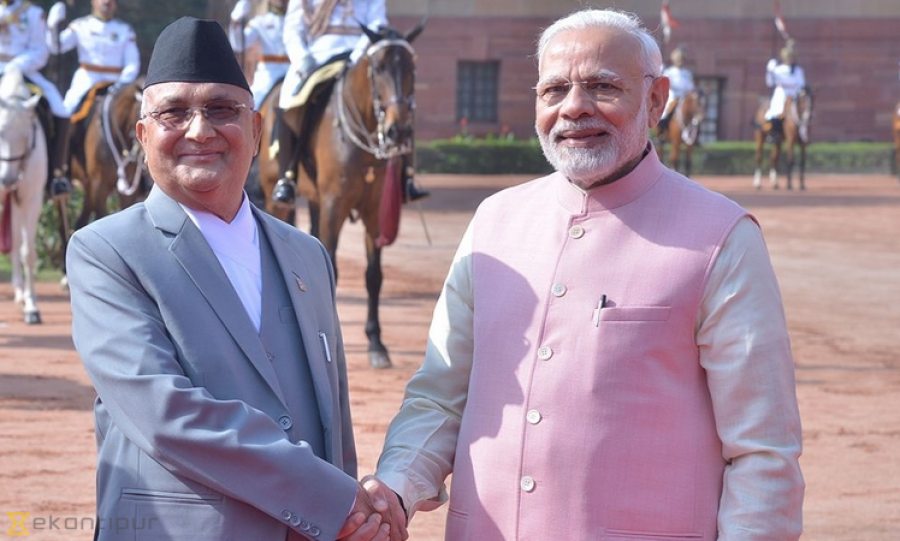Columns
India’s choice in the New World
India must work with the neighbours to revive South Asia as a unique integrated region.
Atul K Thakur
China has been among the leading beneficiaries of globalisation. Its rise has been phenomenal, with its socio-political policies shaped through autocratic communism and economic policies steered by aggressive capitalism. In a consciously maintained dichotomy, China has braved the challenges of its economic and strategic growth. Its territorial ambitions have also known no bounds with its economic clout and the vulnerabilities of the targeted countries.
While China’s imminent losses in the changing times are not exactly the exclusive gains of India, it can explore the green shoots. While relocating supply chains from China, large corporates are looking for essential virtues in the ‘political system’ of the potential new destinations. Here, India has an edge being the world’s largest democracy. As of now, it would be wrong to say that ‘decoupling’ is really happening, and India is getting its slice of the pie conformably.
Isolated investments
India’s foreign direct investment receipt is falling in the worrisome year of 2020, a few isolated investments by Google and Facebook have come with a long-term orientation. In the short run, when the domestic market is facing an acute contraction and loss of economic activities and employment, India needed an immediate capital infusion and a mechanism to handhold the highly-troubled micro, small and medium enterprise (MSME) sector. Noticeably, in pre-Covid-19 times, MSMEs had played a pivotal role in shaping India’s industrial landscape; they are supposed to rescue India from the existing economic slowdown.
Small enterprises are the trouble-shooters of the Indian economy. However, deeply affected by the long lockdown and operational disruptions, this segment is facing an existential crisis. The measures adopted by the government of India to support them are not trickling down. With such poor preparation, it is difficult to gauge to what level India will replace China as the next manufacturing hub of the advanced countries, especially the US and Asian giants including Japan and South Korea.
As the situation is alarming with the surge in Covid-19 infections, the government has announced a very confusing phased reopening of various sectors amid a renewed lockdown. The poorly conceived action has been described as ‘unlock’ and is claimed to have an ‘economic focus’. In fact, the unlocking decision follows the latest gross domestic product numbers that showed the slowest growth in 11 years, and a survey conducted by the Centre for Monitoring Indian Economy that says over 120 million jobs have been lost in India during the lockdown.
The economic growth rate of the last quarter of the fiscal year 2019-20 has fallen to 3.1 percent of the GDP. For the whole fiscal year, the growth rate came down to 4.2 percent against the 8.5 percent initially calculated by the finance minister. Even until a month before the closure of the last fiscal year, the government was bullish on achieving a minimum of 5 percent growth. Not even in one's wildest dreams can this be attributed to the pandemic or lockdown as only a week was wasted in the last fiscal year if we take into account the crisis.
The economy was already in a bad shape throughout the last fiscal year, and it was made worse through the policy adventurism and misplaced priorities of the government. The quarterly growth figures for the previous quarters have been revised sharply downwards, for the first quarter from 5.6 to 5.2 percent, for the second quarter from 5.1 to 4.4 percent and for the third quarter from 4.7 to 4.1 percent. Instead of giving it a facelift, the economy was handled in the most unconventional manner.
Indian Prime Minister Narendra Modi’s call for a ‘self-reliant India’ or ‘atma nirbhar bharat’ has a wider meaning. It is forward-looking and surely has high appeal. Apparently, his version of ‘self-reliant’ is not how Mahatma Gandhi felt in moralistic terms after he was influenced by John Ruskin’s Unto This Last or Jawaharlal Nehru’s scientific socialism that prompted him to take India on the path of a planned economy.
Immediate priorities
As the world is assured of seeing a sort of a re-set, India should reckon the urgency of figuring out its immediate priorities. A change in approach is much needed at this point in time. Before the fundamentals of the world order are re-set, there should be a determination to revive regional and sub-regional economic cooperation in South Asia. While staying active in the world, India must work with the neighbours to revive South Asia as a unique integrated region.
Amid this crisis, there is an opportunity to revive the near-defunct South Asian Association for Regional Cooperation, SAARC Preferential Trading Arrangement, South Asian Free Trade Area, and the Bangladesh, Bhutan, India and Nepal (BBIN) initiative. As trade and exports are on the verge of collapse, it is high time South Asia came forward to make goods and consume them in the region. In a new world filled with uncertainty, such an approach will help both the government and industry to find traction to survive and thrive.
If India can end the ‘policy uncertainty’ on the domestic front and in the neighbourhood, it has a bright spot in the new world. A lot will surely depend on pure action and tapping the opportunities which are abundant.




 8.54°C Kathmandu
8.54°C Kathmandu















